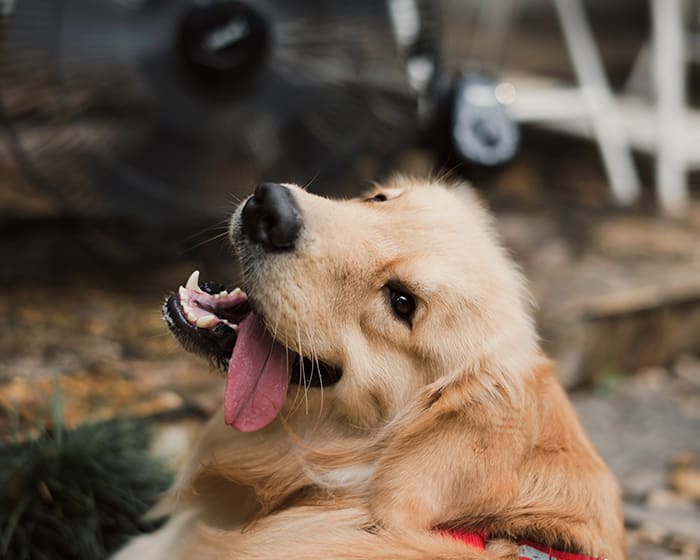Veterinary Dental Care & Dental Surgery
Dental care is a critical element of cats' and dogs' overall health. That's why our vets at Apple Valley Animal Hospital provide preventive and restorative dental care for pets in Apple Valley.
Comprehensive Dental Care for Cats & Dogs
One critical element of your cat's or dog's overall health is routine dental care. However, most pets don't get the necessary oral hygiene care to keep their gums and teeth in excellent shape.
Vets at our Apple Valley animal hospital provide complete care for your pet from basics such as dental cleanings and exams to teeth polishing, x-rays, and surgeries.
We are also steadfast advocates of dental health education and awareness about at-home dental care and other topics for pet owners.

Pet Dental Surgery in Apple Valley
We know learning that your pet requires dental surgery can be anxiety-inducing. Fortunately, we're here to make this process as easy and stress-free as possible, for both you and your pet. We'll do everything within our power to ensure your pet has a smooth and comfortable experience with us.
Apple Valley Animal Hospital offers tooth extractions, gum disease treatment, and jaw fracture repair surgeries for cats and dogs.
Pet Teeth Cleaning & Exams
At least once each year, your pet should come in for a dental cleaning and examination. Cats and dogs who are more susceptible than others to dental health issues may need to visit more often.
Our vets at Apple Valley Animal Hospital can assess, diagnose and treat dental health issues in cats and dogs.
- Symptoms
If you notice any of the following symptoms in your pet, it's time for a dental checkup.
- Discoloured teeth
- Swelling or pain in or around the mouth
- Loose and/or broken teeth
- Extra teeth or retained baby teeth
- Bleeding from the mouth
- Bad breath
- Abnormal drooling, chewing or dropping food from the mouth
- Reduced appetite or refusal to eat
- Tartar buildup
- Assessment
Before your vet performs the dental exam, a thorough pre-anesthetic assessment will be completed.
Blood and urine analyses will be completed to make sure your pet is healthy enough to undergo anesthesia. Sometimes, your vet may perform additional diagnostic tests or imaging, such as an ECG or chest radiograph.
- Treatment
The next item on your vet's list will be a teeth cleaning and polishing (including beneath the gum line. X-rays will also be taken and a fluoride treatment will be applied to each tooth.
Finally, a dental sealant is applied to prevent plaque from sticking to your pet's enamel. If the vet finds advanced periodontal disease, a custom treatment plan will be developed and your vet will discuss it with you.
- Prevention
Two weeks after your pet's initial assessment and treatment appointment, your pet will need to come back for a complimentary follow-up examination.
At this visit, your vet will explain how you can implement at-home dental care such as teeth brushing. You may also receive recommendations for products to help improve your pet's oral health.
FAQs About Pet Dental Care
Here are some of the most frequently asked questions we've received from clients regarding dental care for pets.
- Why do pets need their teeth cleaned?
Just like us, it's possible for poor oral health to lead to tooth decay or periodontal disease in our pets.
When animals eat, plaque attaches to their teeth and builds up into tartar if not brushed away regularly.
This can cause periodontal disease, tooth decay, and infections in the mouth, in addition to loose or missing teeth. This is why regular dental care is so critical to preventing gum pain or disease.
- How can I tell if my pet has oral hygiene issues?
Health problems can show up as behavior issues in our pets. Your pet may paw at their teeth or mouth or can display symptoms such as drooling excessively (and the drool may contain blood or pus) if he or she is experiencing dental problems. Teeth grinding, excessive yawning, and insufficient grooming are also symptoms of dental health issues.
Tooth discoloration, bad breath, swollen gums are also common signs. If your pet is in pain, they may even stop eating. Find out more about symptoms to the left under Pet Teeth Cleaning & Exams.
- What long-term problems can poor oral health potentially cause in my pet?
Oral health issues and conditions may cause problems such as bad breath, cavities, and severe periodontal disease, but they can also develop into diseases in other areas of the body such as the heart, liver, and kidney.
Tumors or cysts may also develop, or you may find your pet is not feeling well in general (if you've ever had a cavity or toothache, you know how it can affect your mood). Plus, oral health-related conditions and diseases can cause significant pain around the mouth and even shorten your pet's lifespan.
This is why we are so passionate about reminding pet owners that regular dental care is essential to their pets' health and wellbeing.
- What happens during a pet teeth cleaning appointment?
As the vet performs your pet's regular oral exam, he or she will check for oral health conditions or any other symptoms your pet may need to be treated.
Tartar and other debris will be cleaned from your dog's or cat's teeth. The vet will also indicate whether gingivitis, cavities, or other conditions need to be addressed, and provide advice on which actions you can take to correct them.
In some cases, serious oral health conditions will need to be treated with surgery. Before their dental procedure, your pet will be given anesthesia to make sure they do not experience any pain or discomfort. However, you may need to provide special care at home post-surgery.
If you notice your pet displaying any symptoms, book a dental appointment with us.
- What should I do at home to keep my pet’s teeth clean between dental appointments?
Brush your pet's teeth on a regular basis at home and provide dental chew toys to help eliminate plaque.
Do not allow your pet to chew on items that may damage their teeth such as objects that are too hard, toys, bones, or other things that could cause teeth to break or fracture. Feel free to contact your vet with any questions or concerns about your pet's oral health.
Veterinary Dentistry: Anesthesia & Your Pet's Oral Health
Cats and dogs do not understand what is going on during dental procedures, and will often react to dental procedures by struggling or biting. We provide anesthesia to all of our patients before performing dental procedures. This puts less stress on the animals and allows us to x-ray their mouth as needed.

